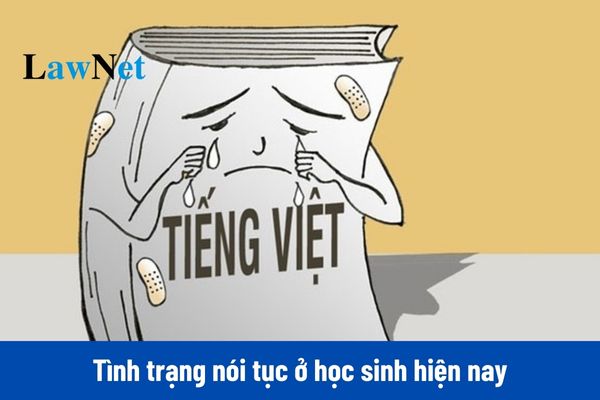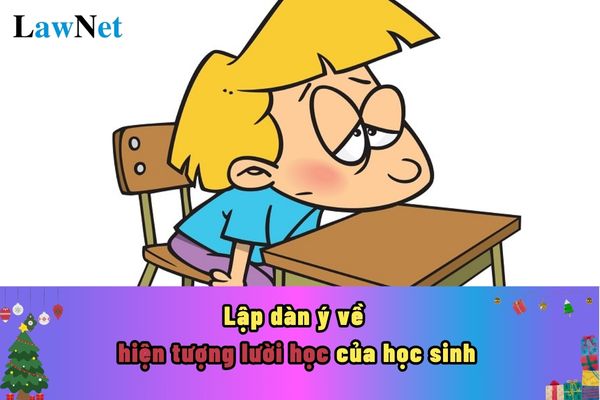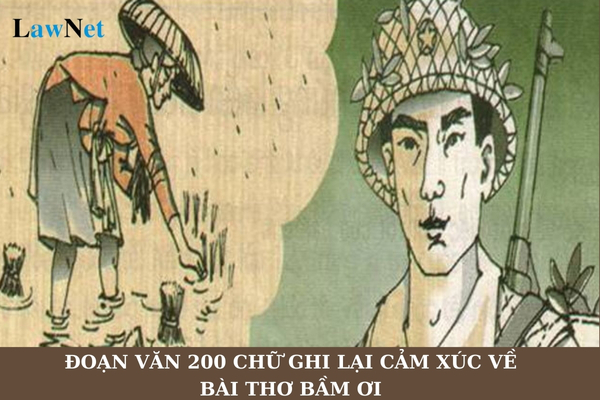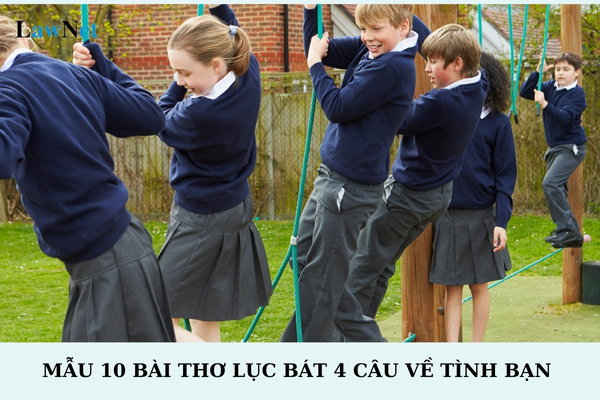Vietnam: What are the sample essays showing opinions on swearing among students under the 6th-grade Literature curriculum in Vietnam?
What are the sample essays showing opinions on swearing among students under the 6th-grade Literature curriculum in Vietnam?
Students can refer to the following sample essays showing opinions on swearing among students under the 6th-grade Literature curriculum in Vietnam:
Sample 1
Currently, the phenomenon of swearing and cursing among students has become prevalent and alarming. Many students have become accustomed to using words that are not only uncultured but also make the listener or the criticized party feel angry and uncomfortable.
The main cause of this phenomenon can be attributed to social influences such as films, media, and inappropriate educational methods. Additionally, some students may swear or curse to express amusement, empathy with friends, or to appear strong and confident.
However, swearing and cursing is an action that is not only uncultured but also negatively influences social relationships. The use of coarse language can lead to arguments, conflicts, and damage relationships between friends, colleagues, or family members. It can also cause psychological harm to the criticized individuals and affect their learning and working environments.
Therefore, to prevent this phenomenon, it is necessary to strengthen moral and cultural education for students. Schools need to implement strict policies regarding swearing and cursing, and teachers should regularly teach the meaning of words and their usage limits. Parents also need to take responsibility for educating their children and monitor their swearing and cursing behavior.
Above all, swearing and cursing is an action that not only negatively impacts social relationships but can also affect the listener's psychology. We need to be sensitive to the use of language.
Our ancestors said, “Think twice before you speak," highlighting the importance of words in interpersonal relationships. However, alongside beautiful words, the problem of swearing frequently appears in daily conversations. Particularly, this phenomenon continuously occurs among young people, leading to unforeseeable consequences.
Sample 2
Swearing is a bad expression in an individual's communication style. Instead of positively using kind and reasonable words in a gentle manner within cultural interactions, some individuals resort to using rude, impolite, and somewhat offensive language. Such words can lead to mental harm, damage to personal dignity, and uncontrollable arguments and brawls.
This phenomenon occurs across many age groups, concentrating among teenagers. As they are in a developing age, yet to mature and consider cultural behavioral aspects, they might absorb "bad" language. Some view swearing as ordinary language, expressing a tough personality. However, if such language becomes habitual, ingrained in one's mindset, it forms a very unpleasant and offensive habit, creating a highly negative communication culture.
Even adults frequently swear casually. Accidentally, this becomes a model, an image for children to emulate. Many violent incidents and altercations arise from joking or swearing, leading to dire consequences. Public gatherings where mature individuals use vulgar language jokingly are deeply concerning. The cultural influence of movies and the degradation of language have led young people to adopt phrases like “extreme”, “fate” that even parents and grandparents cannot comprehend.
Once swearing becomes a habit or trend, it is tough to abandon, though not impossible. By preserving beautiful language and recognizing the importance of words to eliminate bad language, we can foster better communication. Schools need to establish standard rules, etiquette for interpersonal interactions. “Educate children from a young age,” as children are akin to blank slates, needing adults to guide and teach proper speech.
As society progresses, people must actively eliminate bad speaking habits to help achieve a more civilized and beautiful society.
Sample 2
Our educational environment is currently facing many bad habits such as school violence, swearing, cheating in exams, and achievement pressure in education. One of the top challenging issues today is the student phenomenon of “swearing.” This is a negative phenomenon with many harmful effects that need to be condemned and eradicated.
Firstly, we need to understand what “swearing” is. Swearing is when students use uncultural, standard-less words for daily communication. This phenomenon is expressed when students use obscene language to insult or demean someone, or sometimes habitually, leaving a significant negative impression on listeners.
With the explanation above, we see swearing as a phenomenon with many detrimental effects, seriously affecting the personality, morals of the student's generation specifically, and society in general. “Swearing” degrades the morals and personality of students, turning individuals into uncultured, uneducated individuals, shunned and loathed like a disease. It weakens students' communication skills due to improper expressions, turning interactions into unsophisticated encounters, sometimes a “disaster.”
Moreover, swearing seriously affects others, especially when used to denigrate or insult someone. Such actions severely impact the honor and self-respect of those insulted. If repeated multiple times, it can cause pent-up frustration, leading to uncontrollable behavior with potentially serious consequences. Indeed, many tragic school violence incidents have occurred because of swear words, or an offensive look. More dangerously, if this vice isn't curbed, it will create unmanageable repercussions. From one person swearing, to a group, a class, a school, then the wider society. A civilized society will vanish, replaced by a grossly uncultured one.
From the analysis of the consequences above, we need to identify the causes. There are many reasons leading to “swearing,” primarily the following. Many students come from families where parents or siblings have jobs involving extensive social interactions, sometimes bringing foul language home. Learning good things is very challenging, but adopting bad habits is as easy as “used to hearing, used to speaking.” Surely, adult words influence young people's language significantly. In part, due to students' exposure to bad elements in society or special case students. Possibly, habitual swearing, once ingrained, is difficult to change. Schools haven't effectively influenced positive student education.
Based on the consequences and causes above, measures must be implemented to address the swearing situation. Firstly, families must be cautious with their speech. Children must be educated not to mingle with bad influences. In schools, organize healthy Union and Team activities for students to play and learn good things. Each individual should cultivate their moral character to avoid bad habits.
To conclude, swearing is a negative phenomenon with many harmful effects significantly affecting school environments and social life. Each individual and community need to condemn, combat, and eliminate this vice from our living environment. For a civilized school environment, let's all say no to “Swearing.”
Note: Information is for reference purposes only!

What are the sample essays showing opinions on swearing among students under the 6th-grade Literature curriculum in Vietnam? (Image from the Internet)
What are the duties of 6th-grade students in Vietnam?
Under Article 34 of the lower secondary school, upper secondary school and multi-level school charter issued together with Circular 32/2020/TT-BGDDT, the duties of 6th-grade students are as follows:
1. Learn and train according to curricula and education plans of their schools.
2. Respect their parents, officials, teachers and staff of their schools, and those older than them; maintain solidarity and mutual support in learning and training; conform to the charter and rules of their schools; and abide by the law.
3. Take exercises and maintain personal hygiene.
4. Participate in group activities of their schools and classes, Ho Chi Minh Young Pioneer Organization and Ho Chi Minh Communist Youth Union; help their families, join physical and social activities and environmental protection activities, and maintain traffic order and safety.
5. Protect school and public property; contribute to fostering, preservation and enhancement of school traditions.
What are the literary competencies required for 6th-grade students in Vietnam?
Under Section 4 of the General Education Program for Literature issued with Circular 32/2018/TT-BGDDT, the literary competencies required for 6th-grade students in Vietnam are as follows:
- Recognize and distinguish literary text types: stories, poems, plays, signatures, and some typical genres for each type; analyze the effect of some artistic formal elements belonging to each literary genre; understand the explicit and implicit content of literary texts.
- Present feelings and thoughts about literary works and their impact on oneself; initially create some products with literary value.
- Recognize topics, understand themes, and the significance of the read texts; identify folk tales, short stories, lyrical poetry, and narrative poems; lyrical and narrative signatures.
- Recognize the subject of lyrical expression, lyrical characters, and the emotional and cognitive value of literary works.
- Identify and analyze the effects of some formal elements and artistic measures associated with the characteristics of each literary genre (plot, narrator's words, character dialogue, space and time, rhyme, rhythm, imagery, and rhetorical devices such as metaphor, metonymy, exaggeration, euphemism).










- What is the law on light reflection? What are details of the law on light reflection?
- What is the schedule of the AFF Cup 2024 (ASEAN Cup)? What are activities for physical education and sports in vocational education institutions in Vietnam?
- What is the schedule for the AFF Cup 2024 matches of the Vietnam National Team? Are students who are athletes in Vietnam eligible for a special exemption from high school graduation requirements?
- Vietnam: What are the guidelines for analysis of the poem "Tiến sĩ giấy"? What is the regulatory age of students entering lower secondary education?
- What is the location of Vietnam International Defense Exhibition 2024? Are students of all educational levels granted leave to visit the Vietnam International Defense Exhibition?
- What is the formula for calculating population density in Vietnam? What is the population density?
- Vietnam: What is the sample parent-teacher conference scenario at the end of the first semester of primary education? What are the regulations on the organization of parent committees?
- Vietnam: What is the sample outline for an essay on the analysis of the excerpt "The Last Leaf"? What are the assessment levels for learning results in the school year of 8th-grade students?
- What is the unit of power? When do students in Vietnam study the unit of power?
- What is the guidance for children to tell the story "Chuyện bốn mùa"? What is the age of students entering 2nd grade in Vietnam?

